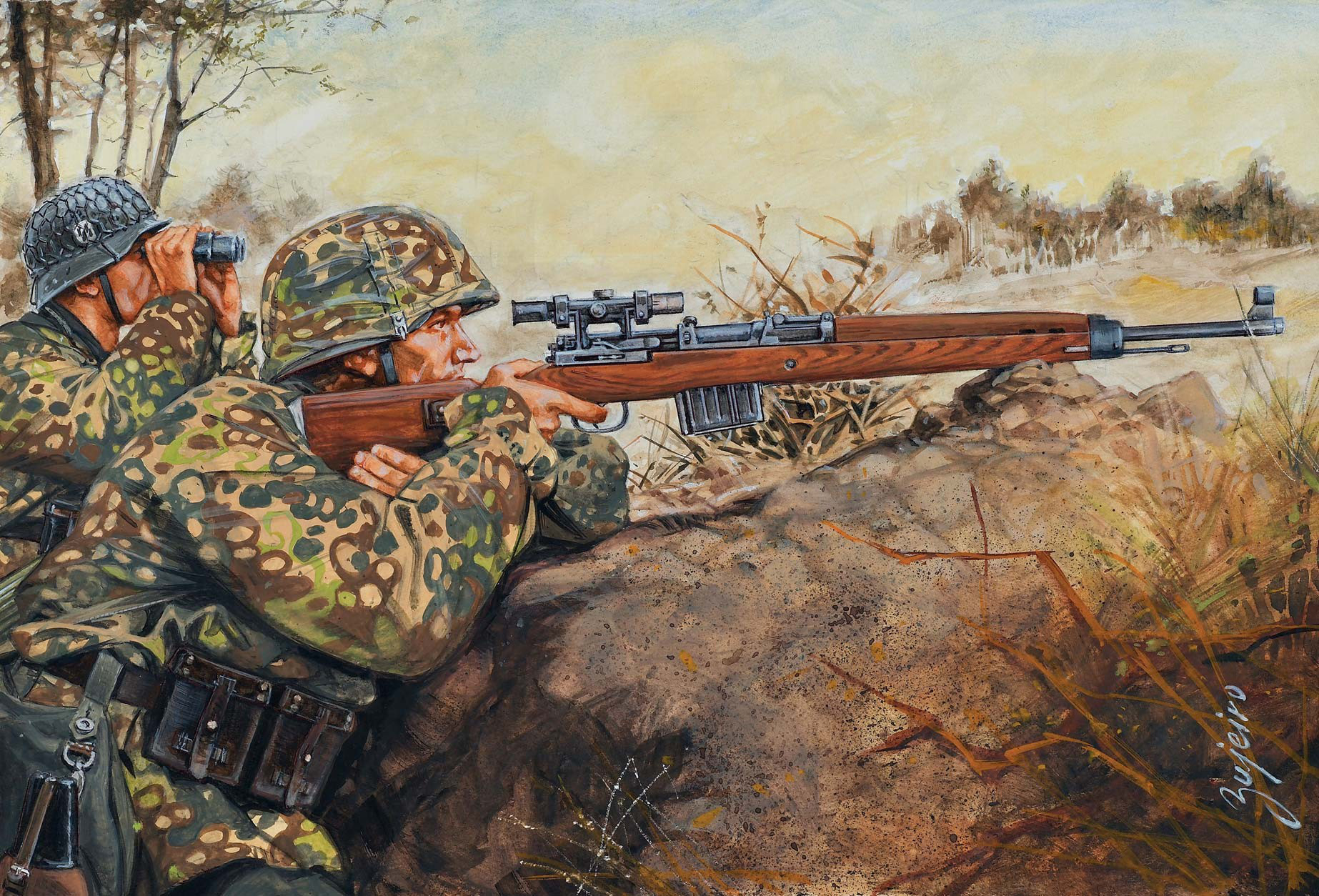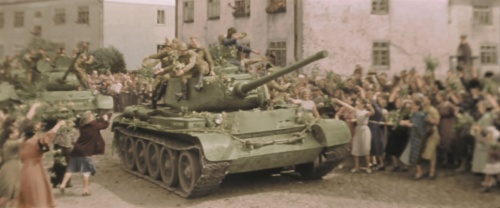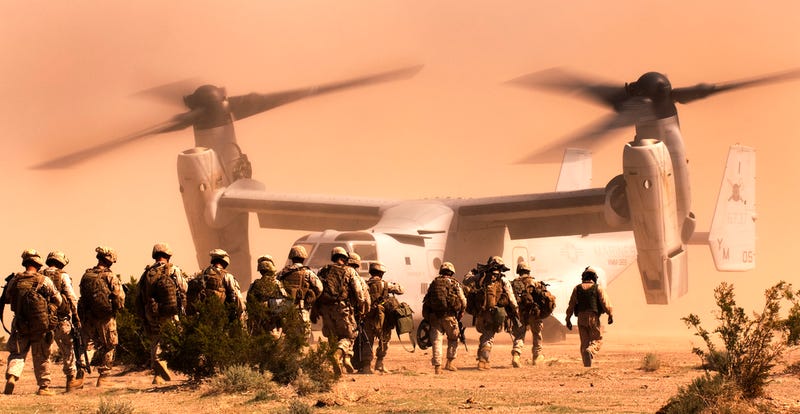All pictures are not exacts, just similar aesthetically to what they represent.
 They never tried to be the best, but merely good enough.
They never tried to be the best, but merely good enough.Brusaleye's military might is centered around practicality and mobility. Where others deploy combat walkers, Brusaleye will trample with rows upon rows of tanks.
What they may lack in super exotic armor and the highest caliber death projectors, they make up for with effective simplicity and sheer numbers.
 Soldier scouting with a scoped Ar-9
Soldier scouting with a scoped Ar-9Modern infantry uses a variety of weapons and tactics when on the field, most in conjunction with armored vehicles and/or air support. These soldiers are broken into small squads of ten that possess a single simple radio. These squads are trained to communicate and not break discipline under stress.
Though this isn't a guarantee for every situation, commanders all agree that communication is necessary for any conflict and the more precise that communication is, the more lethality can be brought against ones foes.
 T-a38 tank on parade.
T-a38 tank on parade.Lethality doesn't stop at squad level either. Brusaleye armored forces are just as adept as their infantry brothers. Be it simple cars to the most modern T-a38 tank, all are crewed by the best the nation has to offer.
Many vehicles in operation are made for mobility and ruggedness. The unforgiving plains can wreak havoc upon machines of all shapes and sizes. Brusaleye machines are made for those conditions. Well protected and ventilated tanks and easy to clean motors give the best protection during the sand storms of the summer and easy attach points for tank plows give them the ability to literally pave the way during the unforgiving winters in the northern parts of the nation.
Armored vehicles are fairly fast for their class and boast decent firepower on that platform. Most vehicles have slightly lighter than average armor (though they are efficiently sloped) to protect against sinking in soft ground which is abundant in the interior of the nation.
 T-r13 airship killer
T-r13 airship killerArtillery exists in many shapes, from simple squad mortars to heavy 180mm howitzers and the fierce 125mm rocket battery.
Artillery was also developed to counter the every increasing threat of aircraft, be it low flying or high altitude. The biggest issue though was the airship.
When Brusaleye saw its first airships, they were confounded by them and scared of their potential. Leaders quickly issued an order to build their own versions but none except small observational blimps were effective. They just couldn't grasp the technology and materials necessary to build these behemoths.
So they took to the drawing board. Conventional artillery shells could be effective but judging from the big guns on those ships, mobile cannons wouldn't be a threat. Air forces would be a threat for airships but there couldn't be sole reliance on one platform.
The army went to the drawing board once more and reflected in whaling techniques as a last resort. An seemingly idiotic thought led to a cheap but effective defensive measure. Fire a big rocket with a shaped charge right at the damned thing.
These rockets are high velocity and while nearly impossible to use against aircraft, these had a high probability of hitting an airship and with the length of the projectile, it could punch far into the craft.
This measure was put into full production and is readily seen in every city on static mounts and mobile on platforms like the T-r13, sometimes lovingly called the 'popper'.
 Soldiers loading aboard a F-c19 Sky Hopper
Soldiers loading aboard a F-c19 Sky HopperThe Military is not without advancements though. Soldiers needing deployment along the vast plains could not always rely on trucks. New technologies had to be made in the form of the turbo prop.
Rockets as aerial propulsion had promise but proved to be less effective than they hoped and the jet engine never left blue prints.
The turbo prop led to many fixed winged aircraft designs. however many didn't out perform the supercharged propeller engines of existing models.
 Fm-x1 flying prototype. The grandfather of the modern F-a21 Saber.
Fm-x1 flying prototype. The grandfather of the modern F-a21 Saber. It wasn't long before a young aviation designer, Yadon Mokunga developed the variable angle engine platform, or more easily titled 'tilt rotor' was born.
This gave life to the mighty turboprop. After a few decades, tilt rotor prototypes evolved into fighters and bombers that could fly as fast and high as any conventional aircraft but with the added benefit of not needing a runway.
Cargo transporting took a similar path as larger designs were pushed through which led to modern variants like the 'Sky hopper'.
The nation never put too much stock into a strong navy aside from submarines so the surface navy is primarily purchased vessels. They are updated and customized to fit Brusaleye's needs but are still very lackluster in today's navies.
Brusaleye has long sought to be the best but they know all too well that every other nation desires that as well.

